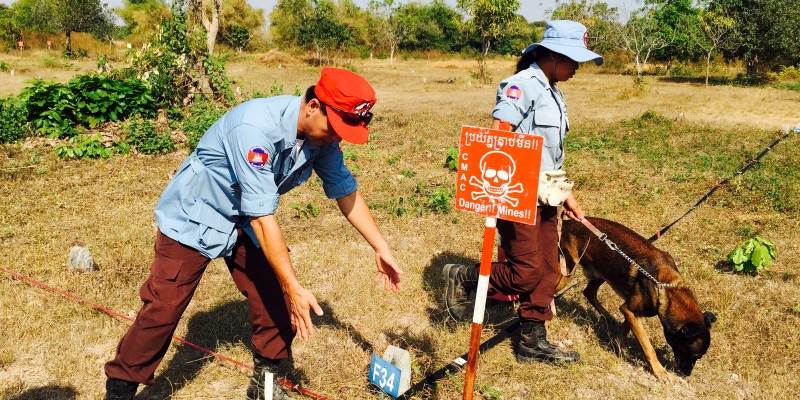20 years ago today, after nearly three weeks of intense negotiations, more than 90 states adopted the Anti-Personnel Mine Ban Convention in Oslo, Norway.
The historic adoption of the Mine Ban Convention in Oslo in 1997 was the culmination of a process of collaboration between states, humanitarian organizations and civil society to unearth and disseminate evidence about the indiscriminate effects and civilian suffering caused by landmines. A few months after the adoption of the Convention, the International Campaign to Ban Landmines (ICBL) and the campaign’s coordinator Jody Williams were awarded the Nobel Peace Prize in Oslo for their efforts to, within the space of a few years, change “a ban on anti-personnel mines from a vision to a feasible reality”.
The Mine Ban Convention has been a success story: To date, 162 states have joined the Convention, and thereby committed themselves to never, under any circumstances, use, develop, produce, stockpile, retain or transfer landmines.
The total ban on landmines has led to widespread stigmatization of these weapons and a strong norm against their use. Moreover, as a result of the Convention’s provisions on stockpile destruction and clearance, more than 51 million mines have been destroyed, large tracts of lands have been cleared, and 26 states have been declared mine-free. The Mine Ban Convention was also the first international agreement to recognize states’ duty to provide assistance for the care and rehabilitation and social and economic reintegration of victims. This was important legal provision that would be further developed in the Convention on Cluster Munitions and pave the way for increased funding for organizations working to provide medical and psychosocial support for survivors and other persons with disabilities.
Most importantly, these efforts have saved countless civilian lives and reduced human suffering.
Yet, challenges remain. Over the last few years, there has been an increase in the use of improvised landmines as tools of war, and the number of civilian casualties from landmines is once again growing. One of the main challenges in the years to come concerns the widespread use of homemade devices, produced and placed by non-state actors. To achieve the goal of a mine free world, it is clear that states, humanitarian organizations and civil society must intensify their efforts to implement the prohibitions in the Mine Ban Convention.
Norway has given substantial financial support to states and organizations working to solve the problem caused by landmines since the early 1990s. Norway is currently funding mine action in 20 countries, and will continue to give priority to countries that demonstrate strong national ownership and clear progress towards completion.
To read more about the Mine Ban Convention, go to: https://www.apminebanconvention.org/
